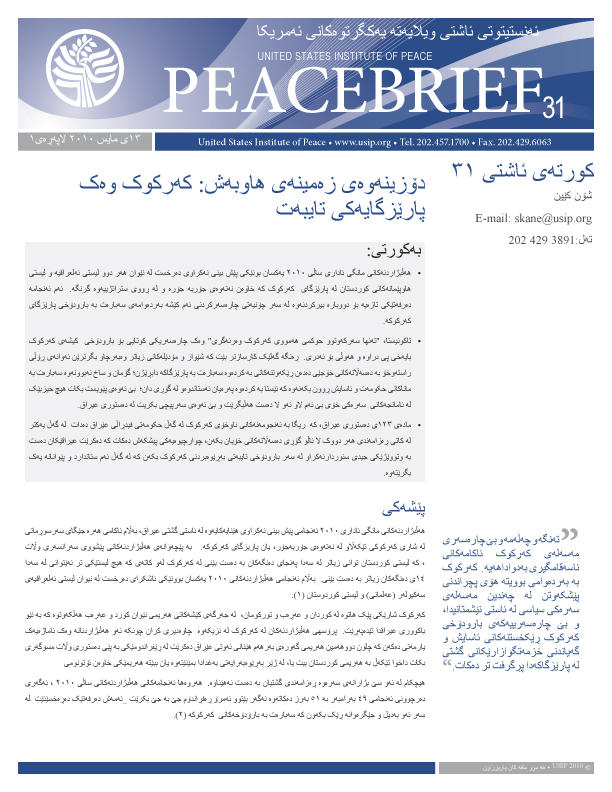Finding Common Ground: Kirkuk as a Special Governorate (Kurdish Edition)
Kurdish Version - Iraq’s March 2010 elections delivered a surprising virtual tie in the ethnically mixed and strategically important province of Kirkuk, making it an opportune time for fresh thinking on how to address persistent disputes over its status. The focus thus far has been on a winner-take-all permanent resolution to the status of Kirkuk. It may be more productive to consider models which give local authorities a direct role in designing potential compromises on the province, clarify serious governance and security ambiguities that have developed on the ground; do not require any party to definitively forgo their ultimate aspirations for Kirkuk, and are compatible with the Iraqi Constitution.

Summary
- Iraq’s March 2010 elections delivered a surprising virtual tie in the ethnically mixed and strategically important province of Kirkuk, making it an opportune time for fresh thinking on how to address persistent disputes over its status.
- The focus thus far has been on a winner-take-all permanent resolution to the status of Kirkuk. It may be more productive to consider models which give local authorities a direct role in designing potential compromises on the province, clarify serious governance and security ambiguities that have developed on the ground; do not require any party to definitively forgo their ultimate aspirations for Kirkuk, and are compatible with the Iraqi Constitution.
- Article 123 of the Iraqi Constitution, which allows the federal government and provincial councils to delegate powers back and forth by mutual consent, offers a framework that Iraqis may wish to employ to negotiate a deliberately open-ended special governorate status for Kirkuk that meets these criteria.
About This Brief
This Peace Brief was written by Sean Kane, Iraq Program officer in the Center of Post-Conflict, Peace and Stability Operations at the United States Institute of Peace. In his previous capacity at the United Nations, he conducted significant field research on Kirkuk’s history and administrative arrangements.



